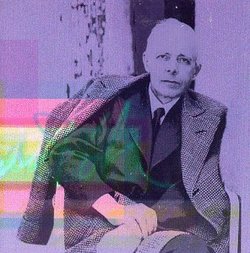Angularity, precision, angst
David A. Baer | Indianapolis, IN USA | 10/20/2007
(4 out of 5 stars)
"One popular dictionary of classical music refers to Béla Bartók's 'driving, anxious rhythms, angular melodies, brackingly sharp dissonances, and folklike modal harmonies'. All of which to say, Bartok does not make for easy listening.
If one must or chooses to fall into the hands of Bartók's six string quartets, he may do no better than to surrender himself to a very long drive and the expertise of the Hungary-rooted Takács Quartet. After hearing the Takásc perform in Indianapolis--their vigor in performance means that one is left as much with a *visual* as an aural impression--I invested in this acclaimed presentation of the full cycle of Bartók string quartets.
Something was perturbing the European soul in the first quarter of the 20th century. History suggests a number of motors of this angst, bloodstained and otherwise. There in Budapest, Bartók was working it out in music.
One is struck by the torment of soul that comes through in the early Bártok, a tumultuous note that is sounded with striking clarity and discipline by the Takács. Bartók would eventually emigrate to America and mellow out a bit, but not hint of such sweetening is apparent here. He is interpreted here with precision.
Upon moving on to the Beethoven cycle played by the same quartet, one breathes more deeply, relaxes, indeed even marinates in that earlier master. Not here. Not now.
If your destiny is to know the worried, worrisome Bartók, start here. You may end here as well."
This one has the attitude
Robert M. Freedman | Gilbert, AZ USA | 03/21/2010
(5 out of 5 stars)
"Of all the recordings I've heard of the six Bartok string quartets this set presents - in my opinion - the best example of how the composer would have wanted the music played. All the groups performed this masterwork with technical accuracy, but the Takács Quartet reflects much more convincingly the combination of Bartok's intellectual cleverness with the down-to-earth soul of the peasant culture from which he derived much of his inspiration (and a number of the themes). To put it briefly, this collection swings!"


 Track Listings (11) - Disc #1
Track Listings (11) - Disc #1